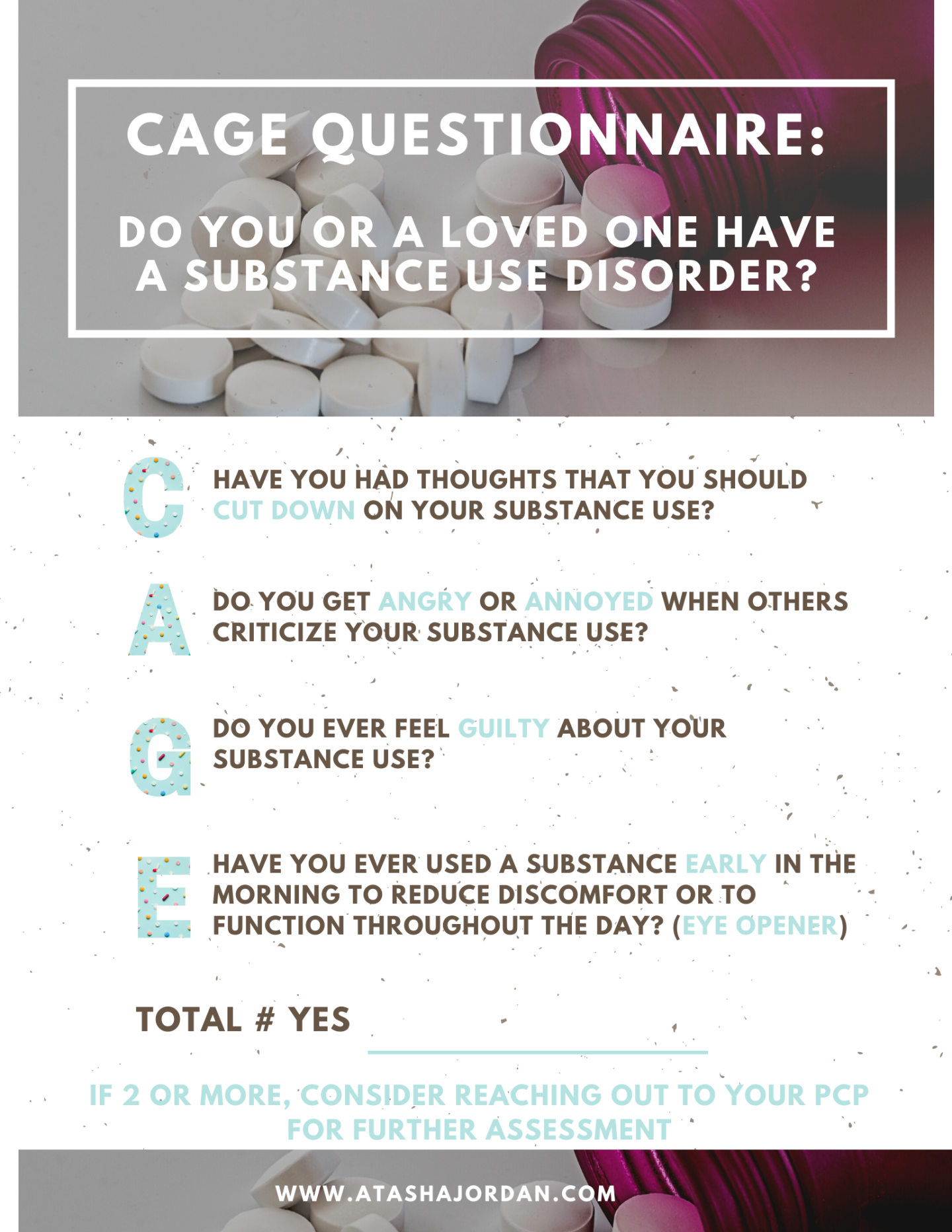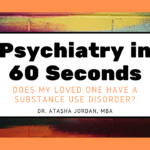Though over 20 million Americans suffer from substance use disorders (SUD), many people do not even realize that they have an illness. This may be because there is a broad array of what qualifies as a substance of abuse. Even more, the onset of substance use disorders is often gradual. What initially starts as social, casual, recreational use slowly becomes an addiction.
According to the Diagnostic and Statistical Manual of Mental Disorders, Fifth Edition (DSM-5) – the psychiatrist’s guide for diagnosis – there are ten categories of substances of abuse. For instance, opioid use disorder and alcohol use disorder have been on the rise in recent decades, contributing significantly to the burden of disease in this country. However, it is not always easy to recognize whether you or a loved one have a SUD. The CAGE questionnaire is a set of 4 questions commonly used by healthcare providers to screen patients for SUDs.
Do you or a loved one have a substance use disorder? – Psychiatry in 60 Seconds Video:
CAGE Questionnaire
In my previous post What is Substance Use Disorder?, I discussed the DSM-5 criteria for substance use disorder. These 11 criteria are used to aid in the diagnosis of persons with disordered substance use. However, you can screen yourself or a loved one for a substance use disorder by using the four questions of the CAGE questionnaire as outlined below.

I hope that this post helped you to better understand how you can recognize whether you or a loved one has a substance use disorder. If you or a loved one answered yes to two or more of the questions in the CAGE questionnaire, it might be a good idea for you to reach out to a primary care doctor or psychiatrist for further assessment, additional information, and next steps. The Substance Use and Mental Health Services Administration (SAMHSA) is also a valuable resource for additional information.
Of note, the contents of this post are not intended to diagnose or treat. Additionally, this post does not establish a doctor-patient relationship.
Dr. Atasha Jordan is an Ivy League-trained psychiatry resident and businesswoman. Learn more about Dr. Jordan here. and feel free to send a message here.






